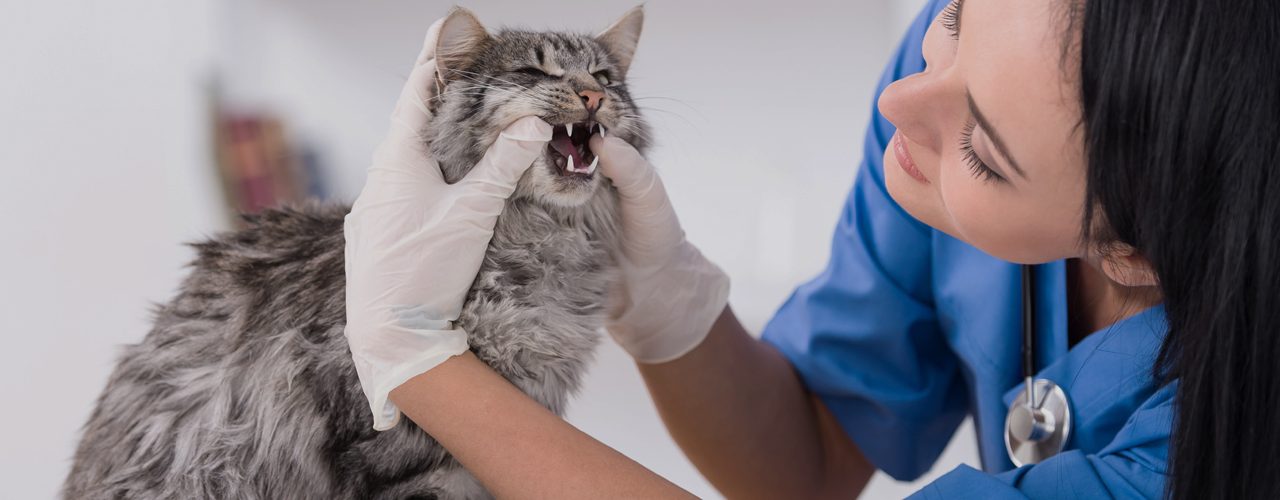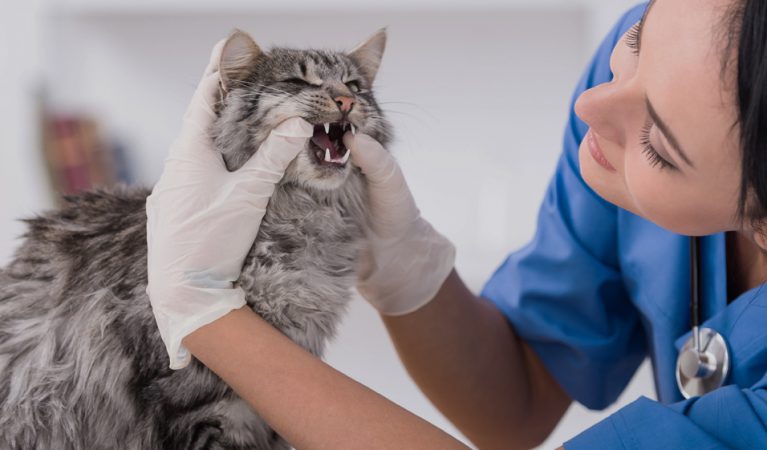
There is more to bad breath than what meets the nose
The inconvenience of bad breath of a dog or cat heralds a more significant problem than a mere unpleasant feeling. Appreciating the causes and implications of bad breath might well determine how we may respond to the problem.
A surprising 700 species of bacteria have been identified that resides in human mouth. Lacking matching studies, it may not be illogical to presume that bacterial species of similar magnitude may be present in the mouths of dogs and cats.
The teeth provide a stable surface for the bacteria in the mouth to colonise; combined with proteins they form a sticky film on the teeth, which gradually thickens to become visible as light yellow Plaque. As the plaque formation continues, deposition of minerals from saliva and food leads to production of thick hard deposits on the teeth called dental Tartar or Calculus.
The bacteria in the plaque trigger an inflammatory reaction in the gum, leading to margins of the gum turning red and easy to bleed. The worsening plaque and calculus impinge under the gum and let infection seep into the tooth root ligament, the tough fibrous structure which surrounds the tooth attaching it firmly to the bony socket. With the decay of the ligament infection reaches tooth root, leading to so called Periodontal Disease, eventually leading to abscess formation around tooth roots.
The earliest symptom of gum disease is a sweet smell from the mouth, which may be associated with the red line appearing along gum margins. As the disease progresses obnoxious bad breath follows with the pet showing some difficulty eating hard food. Abscess formation sometimes leads to swelling of the face and even pus draining from the face.
A painful mouth can change a friendly pet to an apprehensive or even aggressive one. But, the impact of periodontal disease is far reaching. The continual trickling of the bacteria and bacterial toxins into the blood stream from the broken down barriers in the mouth lead to infection depositing in organs like heart and kidneys. The bacteria colonising on the valves of the heart can cause their scarring and shrinkage, leading to chronic heart failure. Infection of kidneys can damage them leading to chronic kidney insufficiency or failure. The liver, body’s main detoxifying plant, the immune system and indeed the whole body is overburdened with the persistent infection and bacterial wastes.
At Sunrise, we take time to examine your pet every time you visit us, including gums and teeth. We facilitate our clients to proactively prevent dental problems. Where dental problems impact a pet’s health, our advanced anaesthetic and dental surgery facilities ensure that the procedure is carried out safely, no matter what their age, giving them a new lease of life!
All enquiries please call 01257 463142 or make an Online Enquiry



